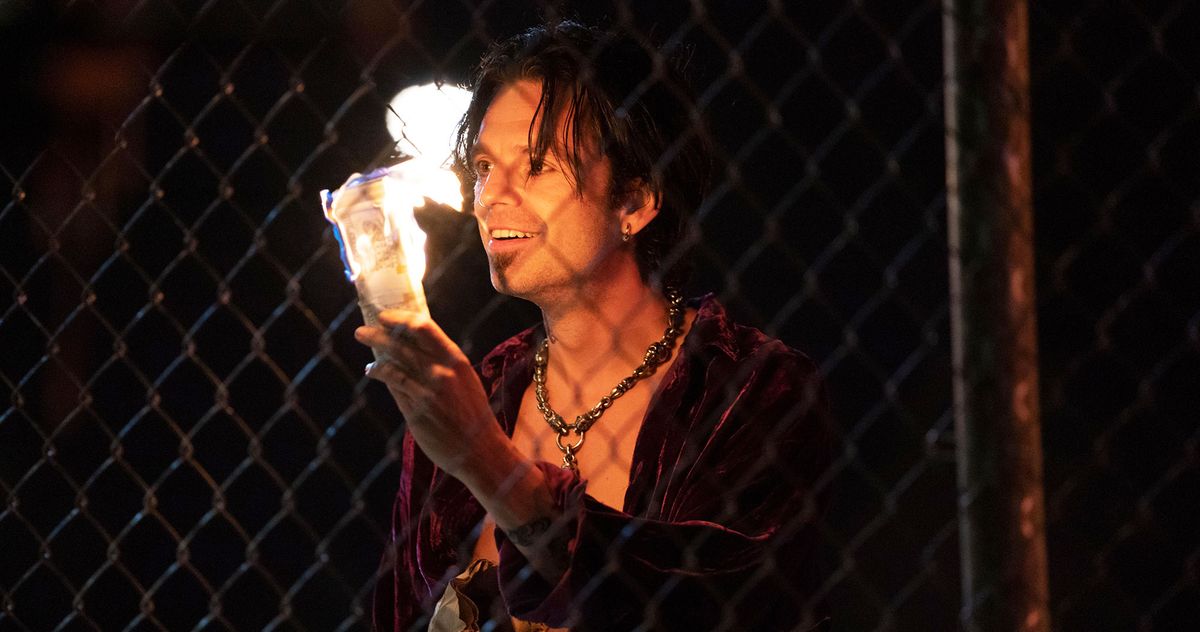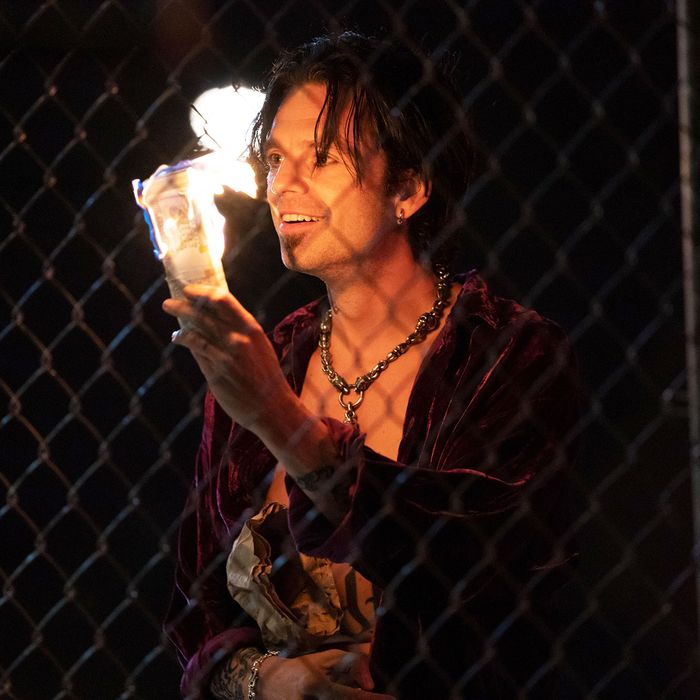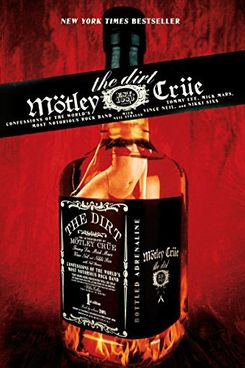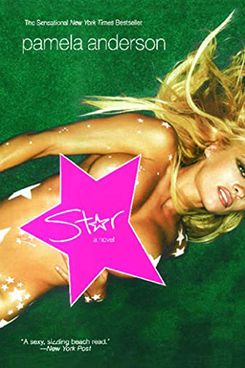
What to Read, Watch, and Listen to Next

Hulu’s Pam & Tommy is the miniseries version of a flight of tequila shots: delicious, intoxicating, and a little nauseating. It’s only natural to be obsessed with the show’s vibe of sincere, flawed humanity and love in the midst of filthily lucrative mid-’90s excess. It’s equally natural to feel a bit queasy about a big-budget miniseries dramatizing one of the worst episodes of Pamela Anderson’s life.
Now that the final episode has dropped, what will you watch, read, and listen to in an attempt to slake your thirst for more context and backstory? We’ve got you covered with feature films, documentaries, podcasts, and memoirs that will bring to life all the heady excess of gossip culture on the early Internet, with a dose of retrospective analysis from 25 years out.
Pam & Tommy is based on Amanda Chicago Lewis’s impressive “Pam and Tommy: The Untold Story of the World’s Most Infamous Sex Tape”, originally published in Rolling Stone in 2014. Lewis met a friend of electrician turned burglar turned would-be-Internet-porn-impresario Rand Gauthier at a party in Los Angeles, and the rest is investigative journalism history. Gauthier himself is a true container of multitudes: the resentful son of a neglectful actor father, a philosopher-nerd, an accidental porn actor, an early web adopter, and a massive weed fan. Seth Rogen’s portrayal perfectly conjures the Gauthier who comes through in Lewis’s article, which also emphasizes that none of the people at the heart of the stolen tape’s journey really won in the end. Gauthier wanted money and revenge after a lifetime of being bullied by sneering, ego-driven, abusive — well — dicks like Tommy Lee, and instead, it brought him ruin.
The other crucial source material is New York Times best-selling author Tommy Lee’s 2004 autobiography, Tommyland. The official co-author is Anthony Bozza, but the book reads as if it was co-written by Lee’s infamous member. “Dick” even gets his own font! Lee’s onscreen conversation with Dick — brought to life by the alchemy of intense puppetry and CGI madness, some well-honed method acting from Sebastian Stan, and the truly singular voice-over talents of Jason Mantzoukas — is taken directly from Tommyland’s proudly purple pages.
If you want to travel beyond the Tommyland city limits for some further insight into why Tommy Lee is Like That, look no further than 2001’s The Dirt: Confessions of the World’s Most Notorious Rock Band. Co-written with Neil Strauss, it’s primarily an oral history of Mötley Crüe’s filthy, drama-soaked journey from their earliest days on the Sunset Strip, to leading the charge that put hair/glam/pop metal at the center of American popular culture for a brief, indelible period from the mid-’80s to early-’90s, to the whiplash aftermath that saw the Crüe and their peers go from being treated like superheroes to being the butt of jokes and denounced as embarrassing has-beens.
The band is still at it, though, more than 20 years after their tell-all, and Crüe mania remains, albeit as a shadow of its former self. The 2019 movie adaptation of The Dirt, available on Netflix, does not disappoint, starting off with a bang (well, banging) and never letting up. The casting of Machine Gun Kelly as Tommy Lee is especially apt, considering Kelly and his fiancée, Megan Fox, are living out a very public, very loved-up and hyped-up existence echoing the early days of Pam and Tommy’s relationship. For a much darker — yet still riveting! — take on life as a member of Mötley Crüe and all it entails, try The Heroin Diaries: A Year in the Life of a Shattered Rock Star by bassist and unofficial band leader Nikki Sixx.
More recently, writers and hair-metal fans Tom Beaujour and Richard Bienstock published the indispensable Nöthin’ But a Good Time: The Uncensored HIstory of the ’80s Rock Explosion. Novelty umlaut aside, the book is a wide-reaching, all-encompassing oral history of hair metal that brings to mind Gillian McCain and Legs McNeil’s now-classic, Please Kill Me: The Uncensored Oral History of Punk. In fact, Beaujour and Bienstock highlight the shared strong DIY ethos of both the punk and metal scenes in Los Angeles, an important bit of historical context that often gets overlooked as a casualty of hair metal’s mainstream appeal and penchant for image and artifice.
And what of Anderson’s take on her own wild story of being discovered by the Labatt’s cam as she sat in the stands at a Canadian football game? That cam’s single, fateful zoom led to her becoming the Labatt’s Blue Zone Girl, which led to her Playboy test shots, which led to her being lauded by some as the ’90s answer to Marilyn Monroe! Well, Anderson is a New York Times best-selling author herself, thanks to her 2004 novel, Star, and its 2005 follow-up, Star Struck, which are clearly roman à clef situations (“Star shows what really happens when A-list meets D-cup, when girl becomes goddess”). For a fun treat, check out Bea Arthur’s section of the extremely dicey yet entertaining 2005 Comedy Central Roast of Pamela Anderson, during which Queen Bea simply opens a copy of Star and reads a few passages aloud, to great effect.
HBO’s cheeky, gleefully violent, yet also deeply sincere series Peacemaker is the handiwork of James Gunn, whose work with music supervisors Ian Broucek and Evyen Klean does for hair metal what his Guardians of the Galaxy mixtape soundtracks did for ’70s AM gold. Gunn has given old and new hair-metal fans a true treat in shining a spotlight on Finnish rock legends and glam-metal influencers Hanoi Rocks. In one episode, Peacemaker and his crew, celebrating a mission victory, take a big, exuberant group selfie while the band’s classic song “11th Street Kids” plays. Peacemaker and IT expert John Economos agree that Hanoi Rocks “is only the greatest band of all time,” and the ragtag team of heroes commemorates the moment by creating a group chat named after the song. Gunn has tweeted about his own deep love for the band, calling them “truly one of my favorite bands of all time (along with the Replacements, the Jam, and Old 97’s),” and his love for the entire genre shines through in every song.
Take it from two gals who lived through these years: The ’90s were gossipy and trashy as hell. To paraphrase some Victorian author or other, it was so much fun, and it was genuinely ghastly. Pam & Tommy takes place in the pre–camera phone era, during which newspapers and magazines relied on paparazzi for photos of famous people, a situation that escalated unchecked until Princess Diana’s death in 1997.
Watching Pam & Tommy has reminded us of how naïve and slightly ghoulish we were about the weird ecosystem of fame in the mid-’90s: Celebrities need public attention to maintain their fame, so they acquiesce to coverage that might be exploitative. When that coverage is exploitative, they object, but everyone is getting paid, so maybe they accept it again. The longer the cycle continues, the deeper their resentment becomes, but what recourse do they have? Even now, only the most elite celebrities can afford to be selective about how they appear in the public eye. We thought that was normal! Our slight nostalgia for this period sits side by side with our knowledge that although the entire celebrity gossip industry isn’t trying to literally murder anyone, only we normies can treat it like a game. Famous people are, y’know, people.
Celebrity couples will always be the engine of the gossip ecosystem, and no one is better than Troy McEady at contextualizing the short- and long-term pop-culture effects of such couples. McEady’s podcast, Dunzo! (formerly known as The Smush Room), features both meticulous research and a consistently hilarious and thoughtful tone. Episode 225 focused on Pam & Tommy, featuring a conversation with Claire and Ashley from the Celebrity Memoir Book Club podcast, and particularly focused on “the Tommy Lee of it all.” As anyone who has paid close attention over the years knows, Tommy is not really the fun-loving, surprisingly sweet, and ever so slightly hotheaded guy as portrayed by Sebastian Stan for much of Pam & Tommy. Of course, Dunzo!’s archives also include a vintage Pam and Tommy episode (#40), followed by an equally insightful and fascinating Pam and Rick Salomon episode. It’s truly bizarre that Pamela Anderson twice married Rick Salomon, a man who is best known for, yes, the sex tape he made with Paris Hilton. In a baroque life-imitating-life twist, Salomon first sued Marvad Corp., the company that originally distributed the tape, and then later distributed it himself, reportedly without Hilton’s consent! We can’t make this stuff up.
If you really want to put the “retro” in retrospective, listen to “Gossip Girls,” the season of Karina Longworth’s indispensable Hollywood history podcast, You Must Remember This, all about rival gossip queens Louella Parsons and Hedda Hopper. Their reigns defined celebrity gossip as we knew it from the 1920s to the 1960s, and although celebrity gossip is now a field open to anyone with 5G and the ability to write a mostly coherent sentence, traces of Hopper’s and Parsons’s influence are visible today in professional, analysis-rich sites like Lainey Gossip, witty podcasts like Who? Weekly, and the anonymous tip-based free-for-all atmosphere of Deux Moi.
Our culture’s compulsion to prosecute women for being aware of how attractive they are hasn’t gone anywhere. We are not so far away from the mid-’90s that we can all give ourselves a hearty pat on the back for being too enlightened to subject a hot woman to mockery and dehumanization when she is revealed as a flawed human being. So what do we do with this unresolvable tension between our appetite for a little light prurience and our righteous desire to right the past wrongs of popular culture — some of which we may have participated in with shameful glee in the past? Kathryn VanArendonk’s recent piece, “The Limits of the Women’s Redemption Plot,” asks viewers, “How different is it, really, from the exploitation we have come to recognize in the true-crime genre, which takes the worst moments of real people’s lives and repackages them for public entertainment?”
There’s no perfect solution, but when a podcast episode or miniseries rooted in a women’s redemption plot is done well, it avoids the exploitative trap of true crime by encouraging us to think critically about contemporary instances of famous women being buried in criticism as being potentially wronged, as vulnerable, and as fully human as we are.



